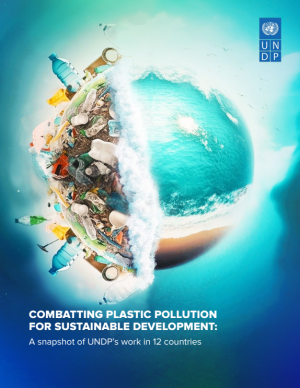
Plastics play a crucial role in today’s economy, helping meet essential human needs. However, plastic pollution has rapidly become one of the most urgent environmental challenges. The Organisation for
Economic Co-operation and Development (OECD) estimates that the world generated 353 million tonnes of plastic waste in 2019 alone. Almost 50 percent of this waste ended up in landfills, 19
percent was incinerated, and 22 percent was disposed of in dumpsites, openly burned or leaked into the environment. Only 9 percent was recycled.
As plastic pollution grows, its harmful effects are felt worldwide, from clogged waterways to degraded marine ecosystems, impacting both the environment and human health. But this challenge
also brings an opportunity to transform how we produce, use, and manage plastics to build a circular economy for a sustainable future. Addressing plastic pollution is critical to achieving the Sustainable
Development Goals (SDGs) of the UN Agenda 2030, and to safeguarding the future of our planet.
The urgency to tackle plastic pollution has never been clearer. Governments are stepping up by advancing negotiations for a historic global instrument to end plastic pollution facilitated by an
Intergovernmental Negotiating Committee (INC) with support from the UN Environment Programme (UNEP). This anticipated global instrument aims to address plastic pollution using a lifecycle approach
to plastics, covering sustainable production and consumption, product design, reuse, recycling and sound management of chemicals and waste. As nations seek solutions addressing the root causes of
plastic pollution, not just treating its symptoms, sharing hands-on experiences and lessons learned is critical to inform the discourse.
This document provides a snapshot of UNDP’s portfolio in 12 countries and outlines six overall key lessons learned on tackling plastic pollution. The following pages may offer useful insights for
countries, communities, and stakeholders combatting plastic pollution while advancing the SDGs.